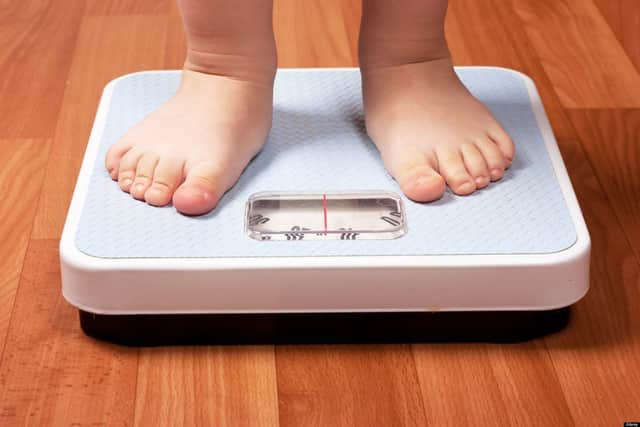Nearly one in four Year 6 children in Doncaster are obese
and live on Freeview channel 276
The Royal College of GPs said access to healthy food "should be a right and not a privilege," as a study found children in the most deprived areas of England are more than twice as likely to be obese than those in the least deprived.
NHS Digital figures show 23.7% of Year 6 pupils in Doncaster in 2019-20 were obese, of which 5.9% were severely obese, with a body mass index (BMI) in the top 0.4% for a child's age and sex.
Additionally, 14.4% of children were overweight.


Advertisement
Hide AdAdvertisement
Hide AdThat means 38.1% of Doncaster's youngsters are unhealthily overweight when they finish primary school.
The data comes from the Government's annual National Child Measurement Programme – part of its approach to tackling obesity – which records the height and weight of Year 6 and reception-age children in state-maintained schools across England to monitor obesity trends.
It revealed that 27.5% of 10 and 11-year-old children living in the most deprived areas of England were obese compared to 11.9% of those living in the least deprived areas.
Among reception-age children, 13.3% in the most deprived areas were obese compared to 6% in the least deprived.
Advertisement
Hide AdAdvertisement
Hide AdCarrie Wardle, Public Health Specialist for Doncaster Council, said: “Childhood obesity is complex issue. There are no easy solutions and it will not be solved by any one single service or policy. In Doncaster, we are reviewing the way we think about tackling obesity and how we can better support families to be healthier. These figures support the evidence that overweight and obesity is more likely to unfairly affect disadvantaged communities and is strongly associated with poverty and inequality.
“Changing the environments people live in to make them healthy and safe; supporting people into stable employment and housing are all things we can influence as a Local Authority to reduce the mental and financial burden on local families, helping them to enjoy healthier, happier lives. When people have their basic needs met, they are better equipped to adopt behaviours that support good health and wellbeing for themselves and their children.”
Professor Rachel Batterham, special adviser on obesity for the Royal College of GPs, said the impact of deprivation on childhood obesity rates nationally is "alarming".
She said: "Access to healthy food should be a right and not a privilege.
Advertisement
Hide AdAdvertisement
Hide Ad"The gap in obesity prevalence between children from the most deprived and least deprived areas is stark and growing.
"It is clear that socio-economic factors such as under-employment or poverty play a key role in driving obesity and poor health, and that a whole-government approach is critical in order to reduce health inequalities and obesity rates."
Across England, obesity prevalence among both reception and Year 6 pupils rose in 2019-20, to 9.9% and 21% respectively.
Caroline Cerny, alliance lead at Obesity Health Alliance, said: “These results are not good news for child health.
Advertisement
Hide AdAdvertisement
Hide Ad“In a year when public health has been propelled to the forefront of politics, we now need action on child health – not just words.
“Taking junk food out of the spotlight through restrictions on marketing and promotions – including the long overdue 9pm watershed on junk food adverts – should be the first step.
“The sooner action is taken, the sooner we can give all children the chance to grow up healthy."
In these confusing and worrying times, local journalism is more vital than ever. Thanks to everyone who helps us ask the questions that matter by taking out a subscription or buying a paper. We stand together. Nancy Fielder, editor.
Comment Guidelines
National World encourages reader discussion on our stories. User feedback, insights and back-and-forth exchanges add a rich layer of context to reporting. Please review our Community Guidelines before commenting.